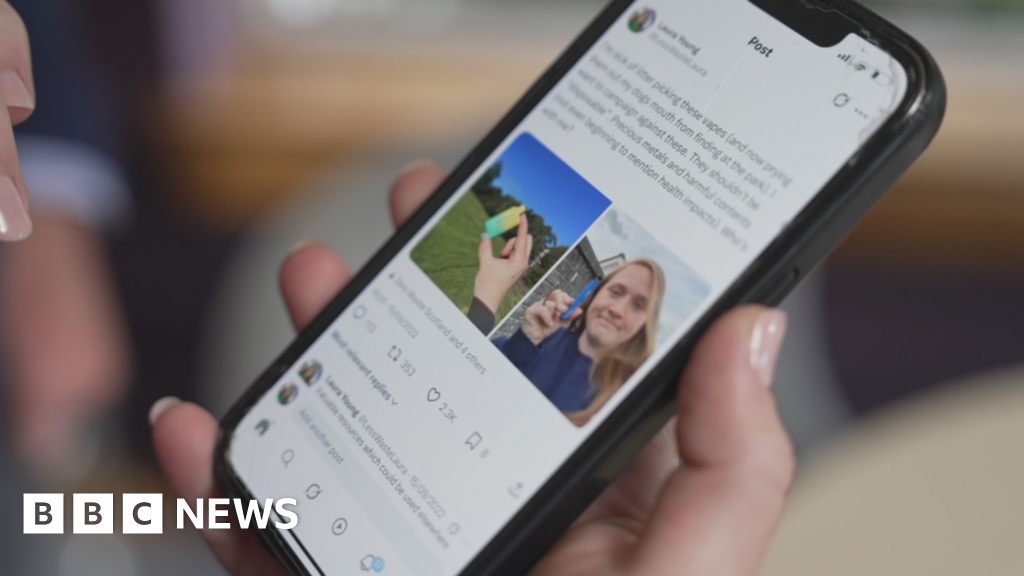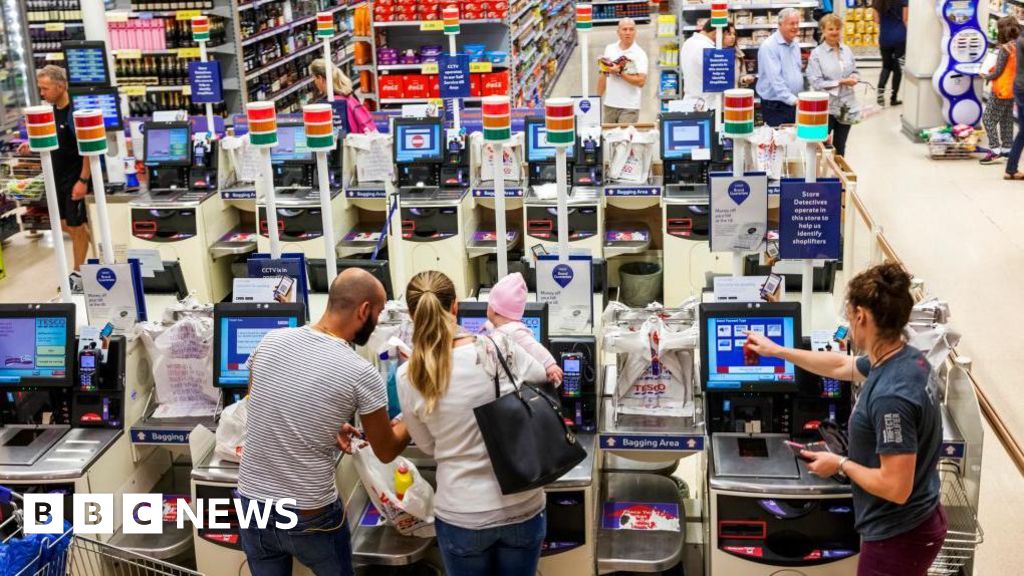- Basketball
EU vows to defend interests after Trump threatens 50 percent tariffs
时间:2010-12-5 17:23:32 作者:Social Media 来源:Podcasts 查看: 评论:0内容摘要:“I think it’s a fair assumption that the international numbers won’t be as high due to the climate and the uncertainties,” said Ryan Bos, executive director of the Capital Pride Alliance. “At the same time we know that there’s an urgency and importance to showing up and making sure we remain visible and seen and protect our freedoms.”“I think it’s a fair assumption that the international numbers won’t be as high due to the climate and the uncertainties,” said Ryan Bos, executive director of the Capital Pride Alliance. “At the same time we know that there’s an urgency and importance to showing up and making sure we remain visible and seen and protect our freedoms.”
For more on Africa and development:The Associated Press receives financial support for global health and development coverage in Africa from the Gates Foundation. The AP is solely responsible for all content. Find AP’s

for working with philanthropies, a list of supporters and funded coverage areas atDIKWA, Nigeria (AP) — Under the dappled light of a thatched shelter, Yagana Bulama cradles her surviving infant. The other twin is gone, a casualty of malnutrition and the international funding cuts that are snapping the lifeline for displaced communities in Nigeria’s insurgency-ravaged Borno state.“Feeding is severely difficult,” said Bulama, 40, who was a farmer before Boko Haram militants swept through her village, forcing her to flee. She and about 400,000 other people at the humanitarian hub of Dikwa — virtually the entire population — rely on assistance. The military restricts their movements to a designated “safe zone,” which severely limits farming.

For years, the United States Agency for International Development had been the backbone of the humanitarian response in northeastern Nigeria, helping non-government organizations provide food, shelter and healthcare to millions of people. But this year, themore than 90% of USAID’s foreign aid contracts and $60 billion in overall assistance around the world.

Programs serving children were hit hard.
Bulama previously lost young triplets to hunger before reaching therapeutic feeding centers in Dikwa. When she gave birth to twins last August, both were severely underweight. Workers from Mercy Corps enrolled them in a program to receive a calorie-dense paste used to treat severe acute malnutrition.ATLANTA (AP) — Natasha Nelson, a 35-year old entrepreneur in Stone Mountain, Georgia, didn’t have an innate sense of social norms. She didn’t know why people meeting for the first time would choose to engage in small talk instead of deep conversations, or why people like to make their beds.
Then, a few years ago, she was diagnosed with, just after her youngest daughter received the same.
“If your life has always felt like it was in chaos and you don’t feel comfortable and you don’t feel like you thrive and you just feel like you’re constantly surviving and going from one thing to the next, what you got to lose?” Nelson said, encouraging people to seek a diagnosis.Common signs of autism include trouble with social communication and a fixation on certain routines or topics — Nelson says “people have become my special interest now” — and may go unnoticed during someone’s childhood.
- 最近更新
- 2025-07-07 04:06:26How did abuse of children go undetected for a decade?
- 2025-07-07 04:06:26Trump brands Mamdani a ‘100% Communist Lunatic’
- 2025-07-07 04:06:26Why is NATO boosting defence spending and can Europe afford it?
- 2025-07-07 04:06:26‘I lost both legs’: Palestinians scale separation wall for chance to work
- 2025-07-07 04:06:26Video Duration 01 minutes 15 seconds play-arrow01:15
- 2025-07-07 04:06:26Associated PressCooper Flagg taken by the Dallas Mavericks with the No. 1 pick in 2025 NBA Draft
- 2025-07-07 04:06:26The furniture fraud that hoodwinked the Palace of Versailles
- 2025-07-07 04:06:26£50m Joshua Reynolds portrait goes on show
- 热门排行
- 2025-07-07 04:06:26The Dual Mandate and the Balance of Risks
- 2025-07-07 04:06:26how to dress and style yourself
- 2025-07-07 04:06:26EyeVac Pro Touchless Automatic Dustpan
- 2025-07-07 04:06:26Judge says Trump cannot deport or detain Mahmoud Khalil
- 2025-07-07 04:06:26AOLPros and cons of an adjustable-rate mortgage: 4 reasons a flexible ARM is worth another look
- 2025-07-07 04:06:26Deadly church attack raises security fears for Syrians, minorities
- 2025-07-07 04:06:26booking excursions through the cruise line
- 2025-07-07 04:06:26'It will make a lot of difference': Reactions to winter fuel payment U-turn
- 友情链接
- Brazil’s Bolsonaro accused in spy agency case as coup trial is ongoing Ex-Argentinian President Cristina Fernandez de Kirchner given house arrest Russia, Indonesia deepen ties as Putin and Prabowo meet in St Petersburg Hurricane Erick weakens after hitting Mexico’s coast as Category 3 storm What led to the attempted assassination of a Colombian politician? See inside newly found smuggling tunnel under Mexico-US border Russia-Ukraine war: List of key events, day 1,215 Mbappe absent again as Real Madrid face Pachuca at CWC – all to know Thailand says ‘progress made’ in border dispute talks with Cambodia Syria church bombing kills 25, dozens wounded Petro’s labour reform referendum suspended by Colombia’s Council of State In Brazil, a fight over offshore drilling tests Lula’s climate ambitions Hurricane Erick approaches Pacific coast, threatens Mexico with flooding Nippon Steel acquires US Steel for $14.9bn after months of struggle Israel-Iran conflict: List of key events, June 22, 2025 Petro’s labour reform referendum suspended by Colombia’s Council of State Belarus opposition leader Siarhei Tsikhanouski freed from jail, says wife Belarus opposition leader Siarhei Tsikhanouski freed from jail, says wife Russia-Ukraine war: List of key events, day 1,214 Prominent Nicaraguan dissident shot dead in exile in Costa Rica Photos: Search for survivors after Russian drones and missiles hit Kyiv Fruit and veg threat extends Thailand-Cambodia border row Russia-Ukraine war: List of key events, day 1,215 Hundreds protest against NATO summit, Israel-Iran conflict in The Hague Hurricane Erick weakens after hitting Mexico’s coast as Category 3 storm Shooting victim Colombia Senator Uribe Turbay critical after brain surgery Fruit and veg threat extends Thailand-Cambodia border row Prominent Nicaraguan dissident shot dead in exile in Costa Rica Hurricane Erick approaches Pacific coast, threatens Mexico with flooding Cambodia halts fuel and gas imports from Thailand as crisis simmers
